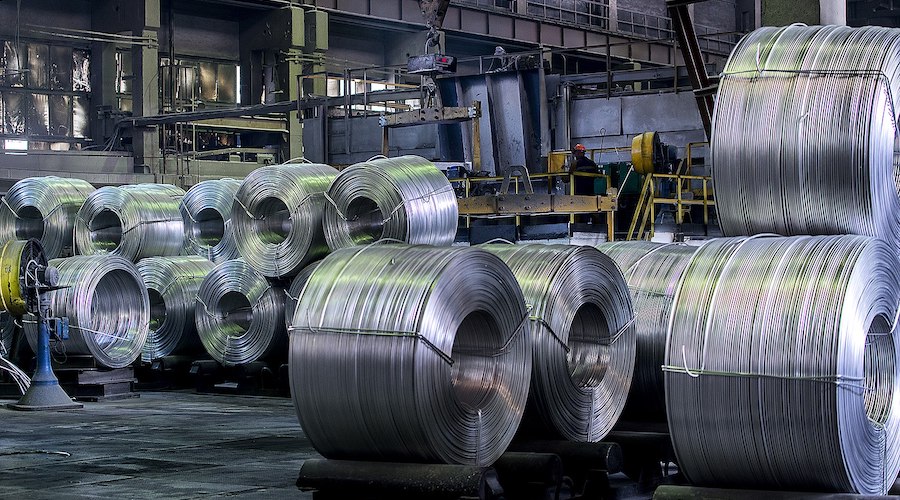Rusal plans sales boost to plug China’s aluminum deficit in 2022

Rusal plans to significantly increase supplies to China next year, where it expects a shortage of the metal to persist due to production curbs, its deputy chief executive told Reuters.
Several regions in China, the world’s top metals consumer, have imposed curbs on electricity usage by energy-intensive industries such as smelting, which has left the country with aluminum deficits this year.
Rusal, the world’s largest aluminum producer outside China, plans to supply 300,000-400,000 tonnes of aluminum to China in 2021, broadly steady from 2020 levels, and to raise sales significantly next year, said Roman Andryushin, head of Rusal’s sales in Russia, CIS and China.
“We plan to sign a number of long-term contracts, for the first time in modern history,” he said.
China, the world’s biggest aluminum producer, usually has little need for overseas supply but a rapid demand recovery after the coronavirus outbreak meant the country had to import a record amount of the metal last year.
Shortages of aluminum around the world pushed prices to $3,169 a tonne on Thursday, the highest since July 2008.
Rusal’s total aluminum output in 2022 will rise to around 4.3 million tonnes thanks to the planned launch of the Taishet smelter, Andryushin said. Rusal produced 3.8 million tonnes in 2020.
Andryushin expects to see the global aluminum market deficit at more than 1.5 million tonnes this year, after a surplus of 1.4 million tonnes in 2020.
“We expect an even larger deficit next year as all economies anticipate higher demand,” he said. “I believe China will be faced with a shortage in the long term.”
Andryushin said aluminum scrap recycling and imports of primary aluminum should help make up the shortfall in China.
“China will try to buy low-carbon aluminum,” he said.
Andryushin described the situation in Guinea, where a coup last month boosted aluminum prices, as complicated, but said there were currently no disruptions of bauxite supplies from the company’s mines there.
Guinea accounts for around 22% of the world’s bauxite production.
(By Anastasia Lyrchikova; Editing by Maria Kiselyova and Jan Harvey)
{{ commodity.name }}
{{ post.title }}
{{ post.date }}




Comments